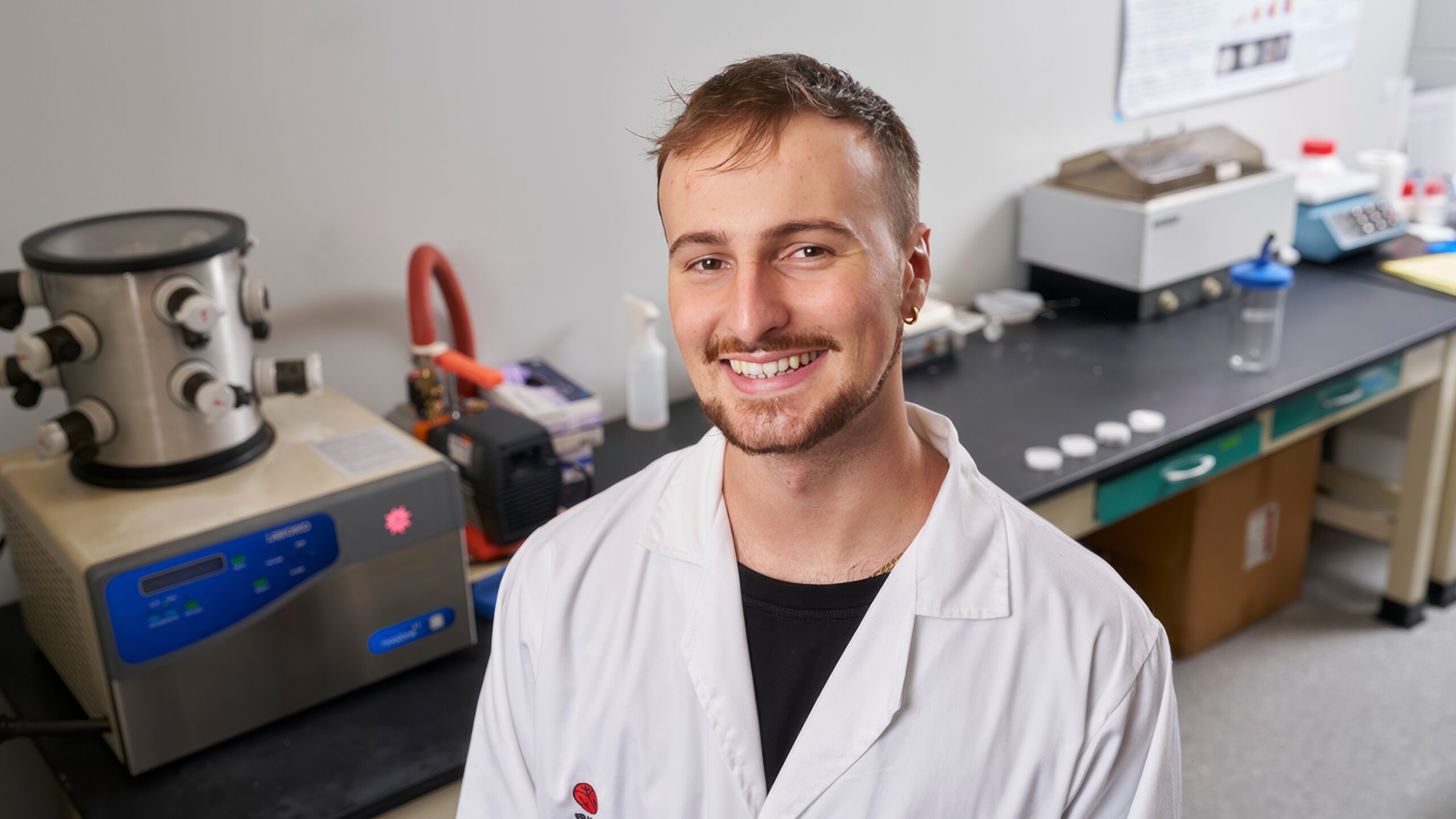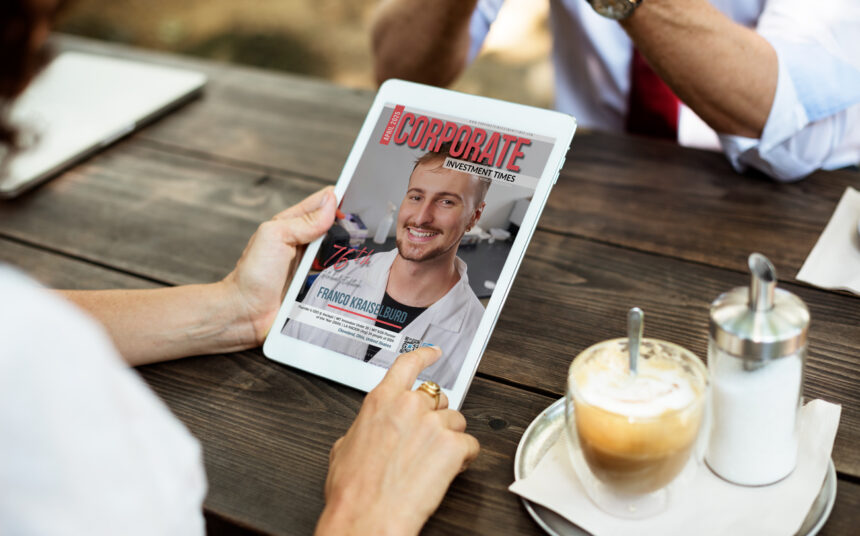In the bustling innovation hub of Cleveland, a 23-year-old entrepreneur is rewriting the rules of regenerative medicine. Franco Kraiselburd, founder and CEO of Asclepii Inc., isn’t just building a biotech startup—he’s igniting a revolution in wound care that could redefine how we scale health technology ventures globally.
With his company’s first venture capital infusion of $2,000,000 from their Seed round led by Zentynel Frontier Investments and including investment from leading VCs such as Capital Factory, Kraiselburd is proving that audacity, ingenuity, and a relentless focus on patient needs can turn a nascent idea into a game-changer.
As Asclepii gears up for a defining year, its story offers critical lessons for HealthTech entrepreneurs and investors alike—and a glimpse into the future of regenerative medicine.
With his company’s first venture capital infusion of $2,000,000 from their Seed round led by Zentynel Frontier Investments and including investment from leading VCs such as Capital Factory, Kraiselburd is proving that audacity, ingenuity, and a relentless focus on patient needs can turn a nascent idea into a game-changer.
As Asclepii gears up for a defining year, its story offers critical lessons for HealthTech entrepreneurs and investors alike—and a glimpse into the future of regenerative medicine.
A Vision Born in Brazil
Kraiselburd’s journey began far from Cleveland’s biotech corridors, in the classrooms of primary school in Brazil. There, a young Franco became fascinated with stem cells and their potential to heal wounds—a curiosity that would shape his life’s work. Fast forward to 2025, and that childhood passion has crystallized into Asclepii, a company named after Asclepius, the Greek god of medicine. At its core, Asclepii is tackling one of healthcare’s most stubborn challenges: the exorbitant cost and inaccessibility of advanced wound-care solutions.
“Every startup has to raise [venture capital], and it’s a battle for everyone,” Kraiselburd told the Cleveland Business Journal in a recent interview. “But in our case, we’re tackling a market that is very, very difficult to enter.” Wound care, he explains, is a sector littered with cautionary tales—high-profile failures that have left investors wary. Yet, Kraiselburd’s conviction and Asclepii’s innovative approach have begun to turn skeptics into believers.

Bridging the Gap in Wound Care
Asclepii’s flagship product, Artemis, is a collagen-enriched, 3D matrix designed as a “jelly-like patch” to heal wounds. Priced at just $5 per unit, it’s a stark departure from the status quo—where bioengineered scaffolds for cell therapy can cost between $300 and $1,500 per application. This isn’t just a product; it’s a statement. “Essentially, there’s nothing between cell therapy and the Band-Aid,” Kraiselburd says. “You have these almost $30,000 solutions, but legally you can only apply them after 30 days of care. And then you have Band-Aids—super cheap, but not really fitting.”
This gap in the “continuum of care” is where Asclepii thrives. Artemis isn’t just a wound dressing; it’s a scaffold that prepares wounds for closure or advanced therapies, managing infections and regulating enzymes at a fraction of the cost of competitors. For now, Asclepii markets it as a superior dressing, but Kraiselburd’s vision is bolder: to one day shift the standard of care, enabling cell therapy within the critical first 30 days of treatment.
Then there’s Poseidon, a silver nanoparticle hydrogel set to hit the market in July 2025. Already FDA-cleared, this “wet interface” preps wound beds for healing, complementing Artemis in Asclepii’s growing arsenal. With a target of $1 million in revenue by year-end, Poseidon is the company’s first step toward building customer relationships and proving its scalability.
Lessons in Scaling: Relentless Focus and Strategic Simplicity
What sets Asclepii apart isn’t just its technology—it’s Kraiselburd’s approach to scaling. Lesson one: focus relentlessly on the patient. “Everyone in wound care has been looking at translational products from one way, and we’re 180 degrees in the opposite direction,” he says. While competitors chase high-cost, high-complexity solutions, Asclepii prioritizes affordability and compliance. “Why are you creating a $1,700 solution for a patient who’s probably not even going to follow through with it?” he asks. It’s a question that cuts to the heart of HealthTech’s scaling challenges: innovation means little if it doesn’t reach those who need it.
Lesson two: start simple, then expand. By launching Artemis as a $5 dressing rather than a full-fledged cell therapy scaffold, Asclepii sidesteps the regulatory and cost barriers that stifle early-stage ventures. This pragmatic entry point builds traction while laying the groundwork for bigger ambitions. “We’ve made a $5 scaffold [and we’re] bringing [it] to the first 30 days of the continuum of care—something never before seen,” Kraiselburd explains. It’s a masterstroke of strategic simplicity, proving that scalability often hinges on accessibility.
Lesson three: partnerships and execution trump hype. Fresh off South by Southwest, where he networked with global innovators, Kraiselburd emphasizes the power of “the right partnerships” and “the right capital.” With Zentynel’s backing and FDA approval for Poseidon secured, Asclepii is now laser-focused on execution—getting Artemis through the FDA’s 510(k) process and scaling revenue. “The next 365 days are going to be arguably the most defining days of our company,” he predicts.
The Investor Perspective: Betting on Resilience
For venture capitalists, Asclepii’s story is a case study in resilience. Wound care is a notoriously tough market, with regulatory hurdles, reimbursement complexities, and a history of overhyped flops. “The subject-matter experts that a venture capital fund would go to usually tell them, ‘Hey, getting into a wound-care startup is a terrible idea,’” Kraiselburd notes. Yet, Zentynel Frontier Investments saw something different: a founder who’d done his homework and a value proposition too compelling to ignore.
That value proposition—affordable, effective wound care—taps into a $25 billion global market projected to grow as aging populations and chronic conditions like diabetes drive demand.
Asclepii’s ability to deliver at “1,000th of the cost” of competitors isn’t just a selling point; it’s a scalability multiplier. Investors like Zentynel are betting that Kraiselburd’s relentless drive and Asclepii’s dual-product pipeline can turn soft commitments into hard revenue.
The Future of Regenerative Medicine



